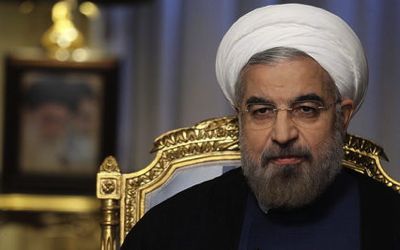
After eight months as President of the Islamic Republic of Iran, Sheikh Hassan Rohani is running into trouble.
In the sphere of foreign policy, the President’s progress in his negotiations with Washington has been very slow, and the Iranians have yet to see any results in their daily lives. The U.S. Congress unanimously passed a law banning visas to any person, including ambassadors to the United Nations, "having been involved in acts of espionage or terrorism against the United States." The Executive branch was therefore unable to issue a visa to Hamid Aboutalebi who, in 1979, participated as a translator in the arrest in flagrante delicto of the American spies attached to the pseudo-U.S. Embassy in Tehran (what Westerners misleadingly refer to as the "hostage crisis"). It is not clear whether or not the reasons invoked by Washington for refusing a visa to a UN Ambassador are condoned by international law.
At the domestic, the President planned to reduce government spending by cutting or eliminating subsidies and allowances. He thus decided to raise the price of electricity and gas by 25% and gasoline by 75%. He has launched a major television campaign to ask wealthy Iranians to do without the monthly benefits granted by President Ahmadinejad from the oil dividends ($ 14 per month, while the minimum wage is 185 dollars per month). But only 5% of Iranians came through.












Stay In Touch
Follow us on social networks
Subscribe to weekly newsletter